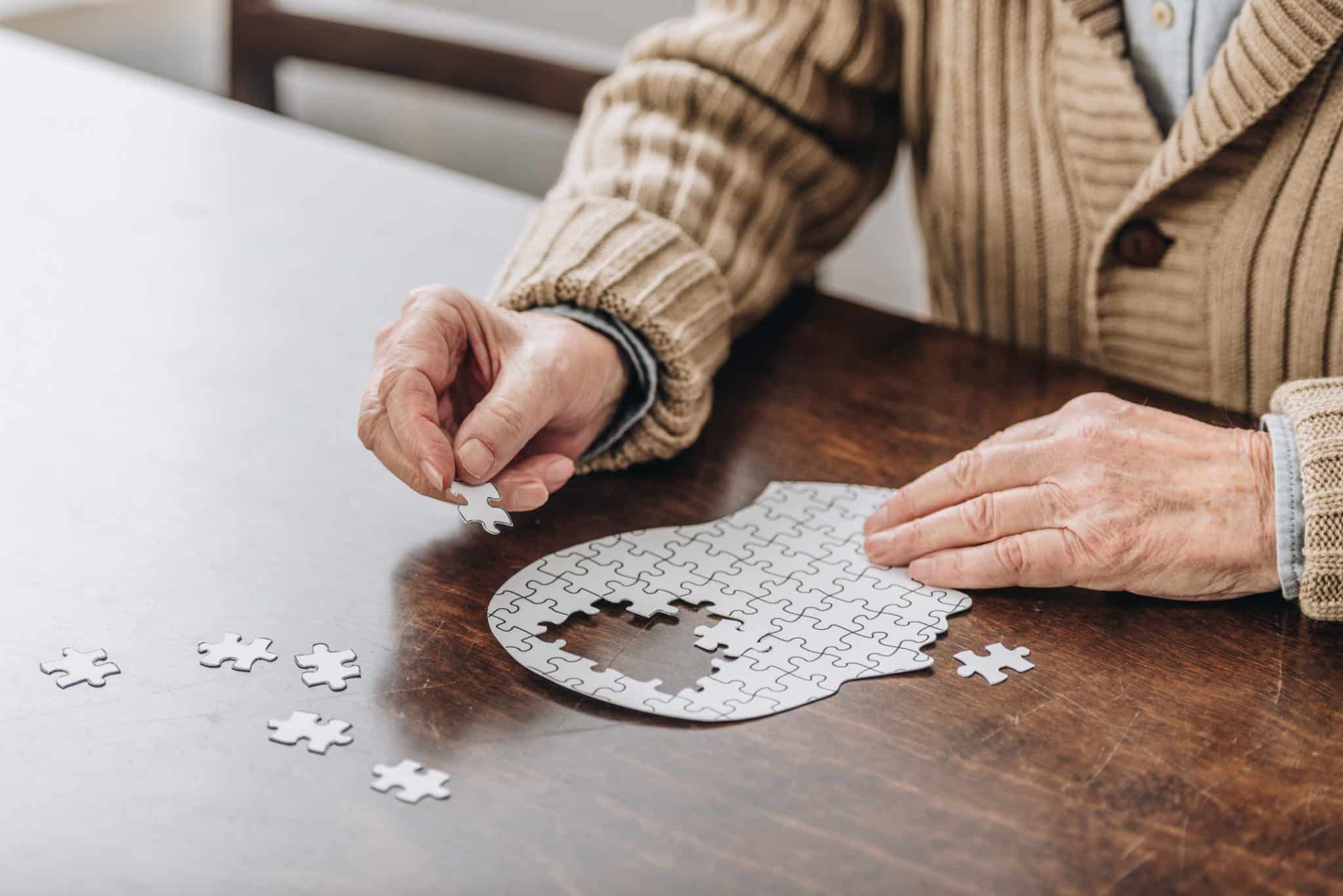Is there a Genetic Link to Alzheimer’s Disease?

September is World Alzheimer’s Month, a campaign created to raise awareness and challenge the many stigmas that surround this disease. If someone you love has been diagnosed with Alzheimer’s then you know how frustrating, difficult, and confusing the disease can be. And navigating the situation while continuing to support your loved one can be tough. Medical researchers are working hard to understand more about Alzheimer’s and answer one common question: “Is Alzheimer’s disease genetic?”
Here’s what the latest research says:
There are two types of Alzheimer’s disease: late onset and early onset. Late onset represents most of Alzheimer’s cases and people typically start to show signs in their mid-60s or later. While researchers have not found an identifiable gene responsible for late-onset Alzheimer’s, there is a gene called the apolipoprotein E (APOE) gene that increases a person’s risk. Everyone inherits two forms of the APOE gene – one from each biological parent – but inheriting the APOE gene does not necessarily mean you will get Alzheimer’s. Similarly, people who did not inherit the APOE gene from either parent are sometimes diagnosed with the disease.
Early onset Alzheimer’s is much more rare,and usually occurs between ages 30 and 60. While not all cases are genetic, there are three inherited single-gene mutations believed to be associated with early onset Alzheimer’s. For a person whose biological parent carries one of these three genetic mutations, there is a 50% chance that person will inherit the mutation which may lead to developing early onset Alzheimer’s.
Having a parent who has been diagnosed with Alzheimer’s disease does not strictly mean you will also get it. Research shows that if you have a sibling or a parent with Alzheimer’s you are more likely to develop the disease, but it’s not a guarantee. Alzheimer’s is a type of dementia and dementias typically run in families but researchers are still trying to determine if it’s caused by hereditary factors, environmental factors, or some combination of both.
If Alzheimer’s disease runs in your family, you can take a blood test to determine if you have any of the genes that increase your likelihood of being diagnosed. But it’s important to keep in mind that there is no current test that can tell you definitively if you will develop the disease or not. In order to monitor for early signs of Alzheimer’s, experts recommend understanding your family’s medical history, being aware of the signs and symptoms, having consistent conversations with your doctor, and checking in with family members regularly.
Assisted living for your loved one
When someone you love receives an Alzheimer’s diagnosis there are many factors to consider. First and most importantly is their safety and well-being, and unfortunately most people diagnosed with Alzheimer’s will struggle to continue living independently after a period of time. An assisted living facility with around-the-clock care and security, but that also allows your loved one to maintain their lifestyle and retain their independence, is often the best way forward.
At United Methodist Communities our residents enjoy personalized care and have full access to many amenities including housekeeping and maintenance services, health monitoring, medication assistance, and more. For those with Alzheimer’s disease, our facility ensures they are always healthy and safe at all times and you’ll also have peace of mind knowing they’re being cared for by professionals.
For information about Pitman, our assisted living community in Gloucester County, please contact us today. We look forward to hearing from you.




